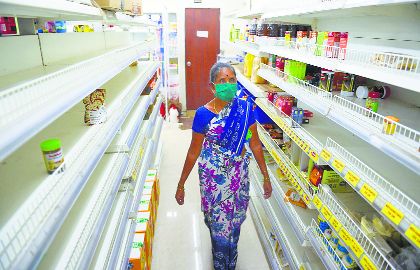Covid offers opportunity to redirect our economies toward ecological sustainability

The Covid-19 pandemic has already triggered several new and important learnings. Living in lockdown with limited supplies is teaching us the value of frugality. The realisation has begun to dawn on us how little one needs to get by in life. We have been compelled to step back from the spiralling vortex of rising consumption and higher material standards of living and turn inwards, reconnecting more closely with our own selves and with family and friends.
Some of us will wish to plunge, as soon as possible, back into the frenzy of modern life and experience the high of high-speed living. But it is possible that enough people would be encouraged to question the well-springs of a civilisational ethos which values material accumulation and acceleration of human activity above all else. They would have witnessed how blue skies and clean air have returned to our poisoned cities. In some North Indian cities, the Himalayan ranges are suddenly visible in all their majesty for the first time in living memory.
Even in Delhi’s housing colonies, the bird population has visibly increased in just two weeks as the silence of the streets and the absence of human presence encourage a shy species to reclaim its lost habitat. With polluting industries suspending production, our rivers are breathing again.
There is before us an alternative vision of affluence where wealth must include fresh air to breathe, clean water to drink and a green earth to walk on. What is also becoming apparent is how quickly Nature, when given a chance, can regenerate itself. Covid has been Nature’s warning of the catastrophic fate which awaits all living species if the thoughtless spoliation of the planet’s ecology continues apace.
But alongside this warning has come a tempting glimpse of the wonders that could enrich our lives if it were possible to wind down the frenzied pace of activity to the gentler rhythms of Nature. This does not entail stepping back into a romantically conceived, pristine and innocent past. In fact, the considerable assets which humanity has gathered through science and technology, and its perennial spirit of innovation, can be harnessed to reorient our economies to an altered vision for the future.
Modern economies are driven by a value system which attaches greater merit to disposability than to durability. This ensures a constantly rising demand for products, such as newer models of cars or television sets, mobile telephones or computers. This has created a huge mass of gadgets, appliances and even items of daily use which are disposed of as waste.
It is easier to throw away an item than repair it. Our value system must change to value durability over disposability and this must get reflected in the system of economic incentives and disincentives. Products should be designed for durable use with the possibility of incorporating incrementally, technological innovations. Corporate advertising should reflect this change in orientation.
The reorientation of our economies towards greater sustainability also requires the comprehensive embrace of recycling as indispensable for conservation. Our production and consumption processes are structured in a linear, once through pattern. Raw materials are processed to yield products and a vast amount of unusable waste is generated in the process. When the products have been used up or consumed, they end up as waste again.
As these once through processes expand, there is greater extraction of resources, further extension of human habitation and activity into the habitats of the Earth’s other species. Current patterns of production and consumption are energy and water intensive, and without recycling and conservation, we confront a deepening resource crisis. What we need to do is to design production and consumption patterns which are circular in character, recycling waste, encouraging zero discharge and reduce fresh extraction to a minimum.
This brings us to the promotion of renewables such as solar energy as the mainstream of our energy systems. Our economies are still fossil fuel based and carbon emissions from the burning of fossil fuels are responsible for the warming of our planet. The fragile, life sustaining systems that hold our planet together are being unravelled, strand by strand, under the impact of climate change and ecological degradation in general. The sooner we shift to renewable energy systems, the more sustainable our economies would be.
So, our economies need to be reoriented towards Reusables, Recyclables and Renewables and it is not beyond modern science and technology to deliver the solutions we need once the goals are set. India can take the lead in this reorientation because reverence for Nature lies deeply embedded in our traditional value system.
Another feature of modern life which needs to be addressed urgently is the industrialisation of agriculture, the mass breeding and distribution of domesticated animals, in particular, beef cattle, pigs and poultry. Their numbers now far exceed all other species of animals in the wild. This loss of biodiversity is now becoming a major threat even as it is being justified as necessary for food security. What this pandemic has demonstrated is the inevitability of such health crises in future if current trends continue.
It is in congested food markets where beef, pork and poultry are sold, in close vicinity of exotic wild animals smuggled in from a few remaining forests, that unfamiliar viruses infect both domesticated animals and humans. This danger is inherent in the food system that has evolved in modern times. This requires a careful rethink. There may be no alternative but to de-industrialise, in graded steps, our agriculture. A leaner humanity which may result from this would be more in harmony with Nature.
Article Credit: tribuneindia
